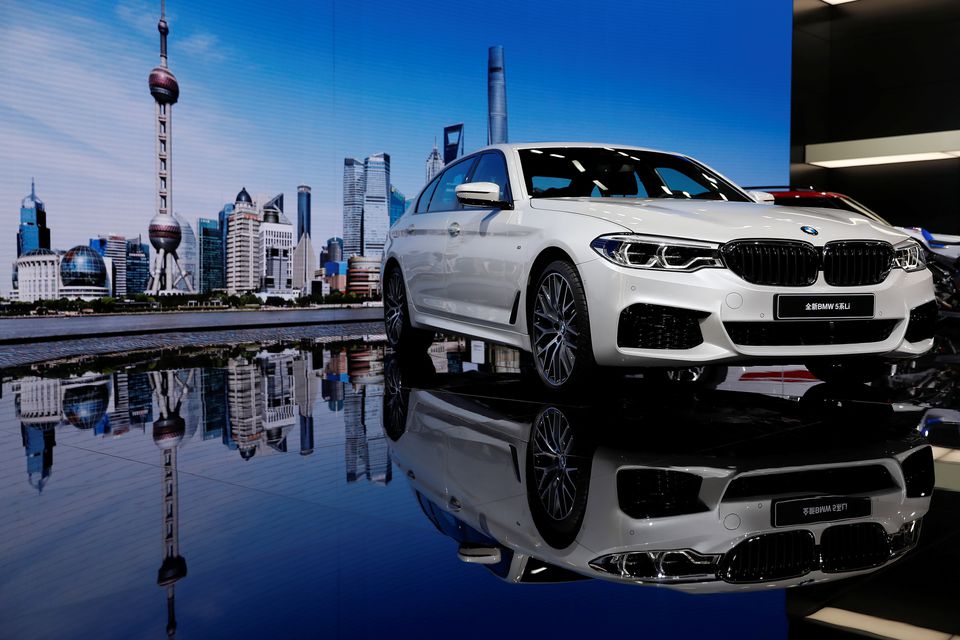HONG KONG, Sept 9 (Reuters Breakingviews) – The looting of Brilliance China Automotive (1114.HK), BMW’s (BMWG.DE) joint venture partner in the People’s Republic, by its indebted state-owned parent sends a signal to other foreign carmakers stuck in similar arrangements: take control or leave.
On Friday, Hong Kong-listed Brilliance revealed that a complex series of undisclosed transactions totalling 53 billion yuan ($7.6 billion) had resulted in a 2.4 billion yuan loss for the company — a separate entity from the BMW JV — between 2019 and 2021. That included 11 billion yuan of fund transfers and loan guarantees for its struggling state-owned parent Huachen Automotive Group which were never run by the board or explained to shareholders. This is not exactly shocking. Huachen has been in bankruptcy restructuring following a series of defaults in 2020, and its ex-chairman was charged with graft.It’s an embarrassment, but then Brilliance is an ugly outlier among Chinese automakers. Its rust-belt home province of Liaoning is one of the weakest regional economies in the country. Since Beijing announced overseas marques would be allowed to take control of auto JVs, investors concluded there would be little value left in Brilliance without its cash cow and its share price has halved until the company halted trading in March 2021 after failing to file its 2020 annual report.
The revelations are nothing for BMW to celebrate after it forked out 3.7 billion euros in February to increase its JV stake to 75% and extended its contract to 2040. Still, consolidation has bumped profit before tax up to 13 billion euros in the first six months of 2022, from 7.5 billion euros in the comparable period in 2021. Having your 25%-partner in a hot mess is an operational risk, but barring skeletons in the closet, it hasn’t hurt BMW.
Many foreign automakers have yet to take control, including Nissan Motor (7201.T) and Ford Motor (F.N). As with BMW, most of their partners are backed by local governments that are now under increasing fiscal stress. There is a rising risk that officials will tap local auto champions for funds, as Guizhou province did with its liquor giant Kweichow Moutai(600519.SS).
The joint ventures are also rife with constant battles over technology, talent and power. BMW and Volkswagen (VOWG_p.DE) moved quickly to seize control; Stellantis (STLA.MI) abandoned its arrangement with Guangzhou Auto Group when its attempt to take control failed. The sooner those sitting on the fence make up their minds, the more insulated they will be.
Follow @petesweeneypro on Twitter
(The author is a Reuters Breakingviews columnist. The opinions expressed are his own.)
CONTEXT NEWS
Hong Kong-listed Brilliance China Automotive disclosed on Sept. 2 the results of a third-party forensic investigation that showed the company had provided “unauthorized financial assistance” and loan guarantees worth 11 billion yuan ($1.6 billion) to its state-owned parent company Huachen Automotive Group in 2020 and 2019. It gave similar assistance to several other counterparties.
The overall result of the “unrecorded or improperly recorded” fund transfers was a net outflow of 1.7 billion yuan, the investigation found. None were reported to the board of directors of the company.
Trading in Brilliance China has been halted since March 2021 after it delayed publishing 2020 financial results.
In February, BMW paid 3.7 billion euros to increases its 50% stake in its Chinese joint venture with Brilliance Auto Group to 75%.











